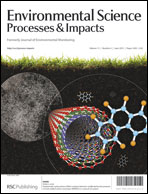Aspergillus versicolor is among the most commonly found moulds in moisture-damaged buildings and can be associated with adverse health effects in humans. This paper reports the development, validation and application of an enzyme immunoassay to quantify A. versicolor antigens. A sandwich ELISA was developed using polyclonal antibodies that recognize a broad range of A. versicolor proteins present in fungal spores and in mycelia fragments. To validate the new method, A. versicolor antigens were quantified in samples collected from homes with visible mould growth, including dust from vacuumed walls and bulk samples of building materials. Antigen concentrations were compared to the results of a commercial ELISA based on monoclonal antibodies (AveX ELISA, Indoor Biotechnologies, Charlottesville, USA) and correlated with colony forming units (CFU) of A. versicolor. The A. versicolor ELISA was very sensitive with a lower detection limit of 120 pg ml−1. The assay also showed some reactivity to other moulds with strongest reactions with other Aspergillus species (1–3% reactivity). The new assay detected A. versicolor antigens in a much higher percentage of dust samples (88% vs. 27%) and bulk samples (89% vs. 24%) than the AveX assay. A significant correlation (r = 0.67, and p < 0.0001) was found between antigen concentrations and CFU of A. versicolor. Based on its low detection limit and good correlation with the culture-based method, this new immunoassay seems to be a useful tool for the measurement of A. versicolor exposure levels and a reliable complement to the traditional monitoring techniques, such as mould cultivation or microscopy.

You have access to this article
 Please wait while we load your content...
Something went wrong. Try again?
Please wait while we load your content...
Something went wrong. Try again?


 Please wait while we load your content...
Please wait while we load your content...